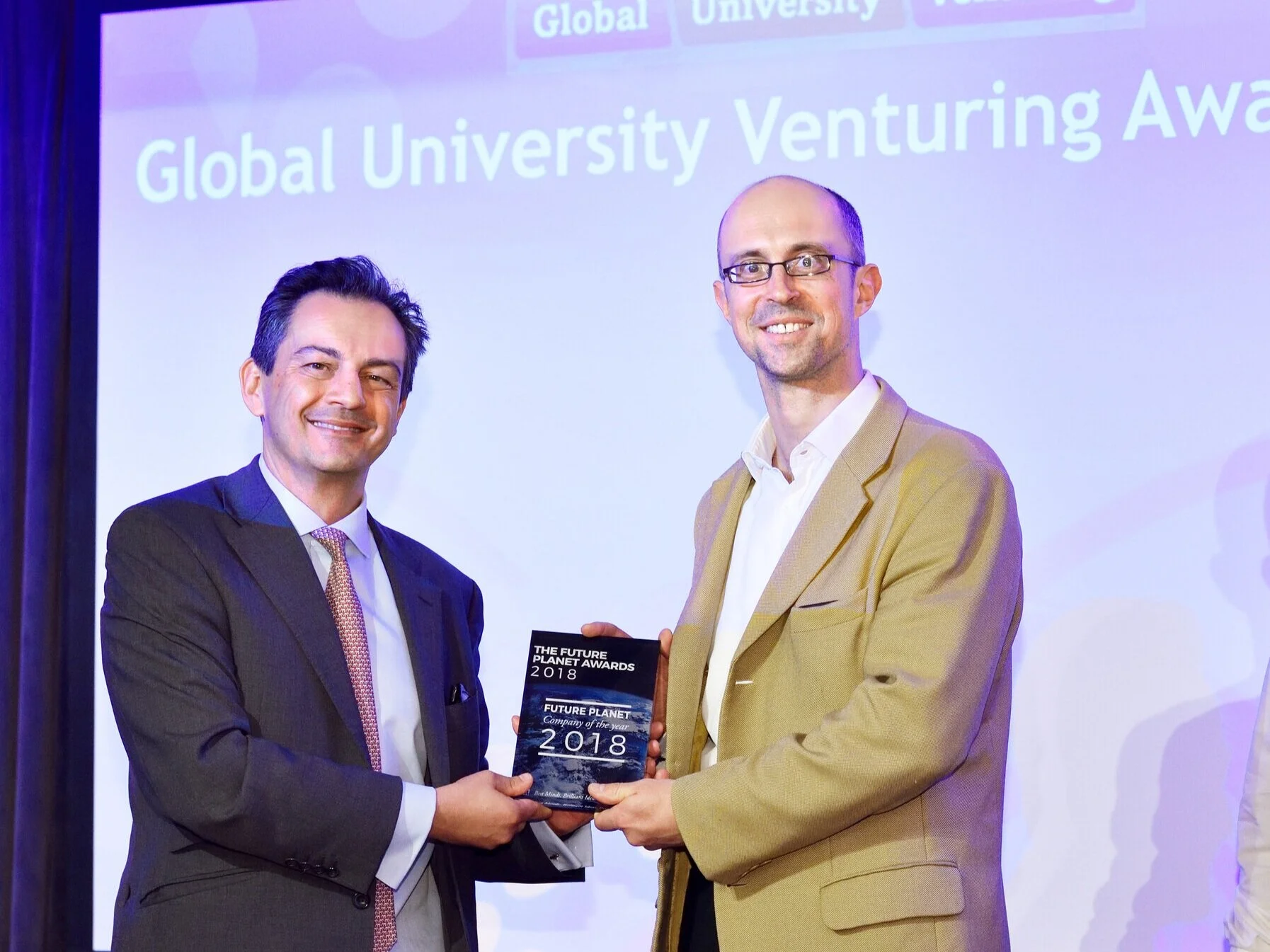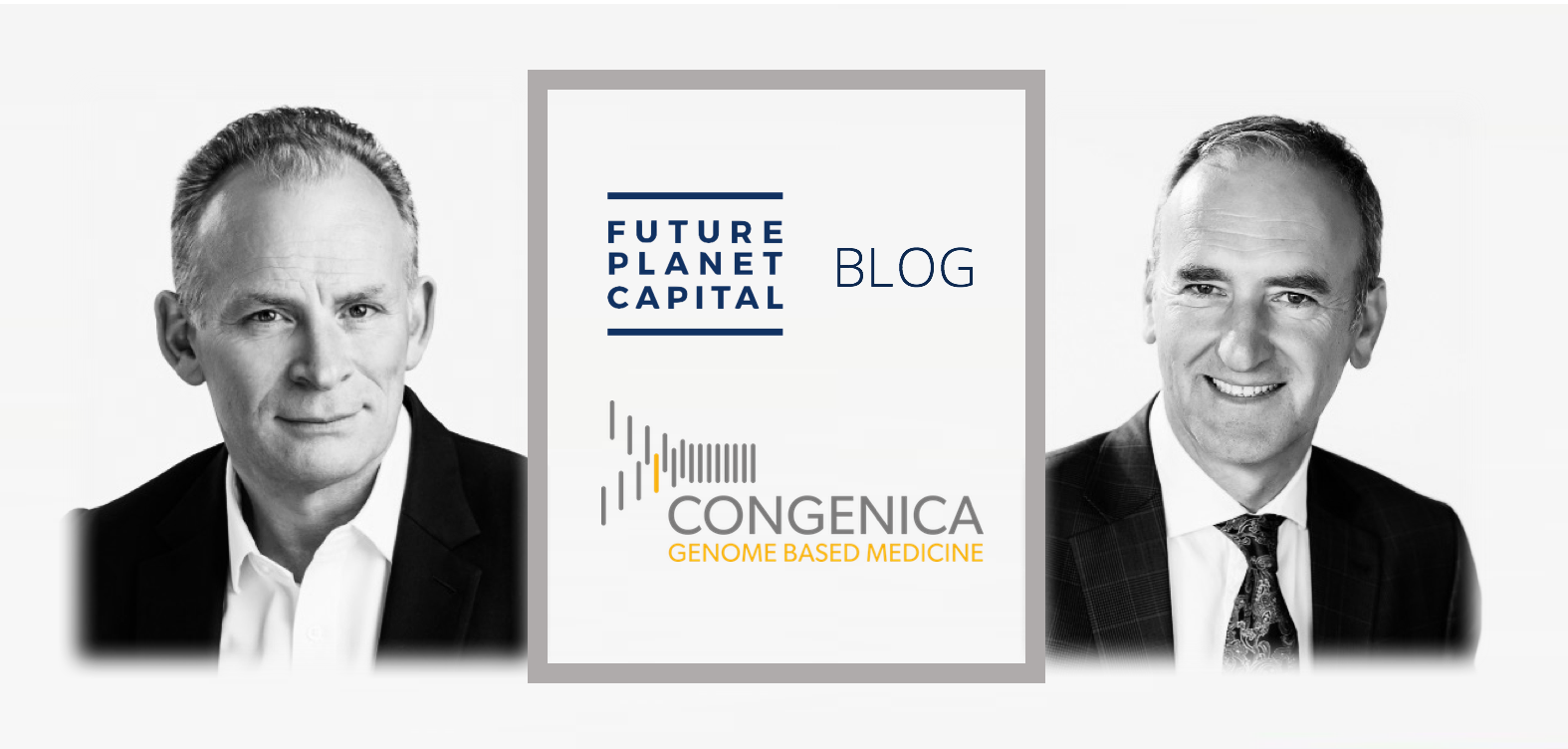When Genome Research Limited agreed to license the Wellcome Trust Sanger Institute technology and back the spin-out of Congenica in 2014, the Wellcome Trust was laying the foundations for a new cohort of biodata driven companies to grow and flourish on the Wellcome Trust Genome Campus in Cambridge, UK. Today, Congenica is a trailblazing success story that Sanger seniors are keen to replicate.
Congenica’s new CEO, Dr David Atkins and Chief Scientific Officer, Nick Lench.
Dr. David Atkins, Congenica’s new CEO, and Dr. Nick Lench, Founder and Chief Scientific Officer, sat down with The Future Planet Blog to share their insights following both firm’s success in securing MOU’s during Secretary of State for International Trade, Liam Fox’s recent delegation to China and discuss Congenica’s current plans for global commercial expansion.
In the winter of 2013, a new start-up entered into a partnership with Genomics England for the UK 100,000 Genomes Project – an initiative to sequence the genomes of 100,000 UK National Health Service (NHS) patients with rare disease or cancer. The genome annotation assessment challenge was known as the “Genome Bake Off,” in a nod to the much-loved British television show where amateur chefs vie to make the tastiest dessert treats.
The team gathered their seed funding and set up base camp in a portacabin on the Wellcome Trust Genome Campus, in Hinxton, Cambridgeshire, only big enough for a handful of people.
“Each company in the bake-off was sent 16 genomes to analyse,” says Lench. “We had a core team of 3-4 people and drew on expertise from Great Ormond Street Hospital in the form of myself and Professor Phil Beales, and from the Wellcome Trust Sanger Institute, with key inputs from Dr Richard Durbin and Dr Matthew Hurles. All of us, co-founders of Congenica.”
“What was different about Congenica was that our team combined the bioinformatics and analytical capabilities from the Sanger with clinical expertise from Great Ormond Street,” says Dr Lench. “We were able to identify rare mutations that someone from a pure software background wouldn’t have easily spotted, and produce a clinical report.”
Their Bake-Off victory, announced in October 2014, helped to precipitate the launch of Congenica as an independent commercial entity. In November of that year, Congenica – now firmly focused on developing tools to support clinicians in diagnosing rare diseases, a platform called SapientiaTM – picked up its first VC investment from Cambridge Innovation Capital, rapidly followed by another from Amadeus Capital Partners.
Changing attitudes
The Wellcome Trust Sanger Institute is a genomics research centre of global repute. It bears the name of Frederick Sanger, the British double Nobel Prize winning scientist who developed the initial paradigm shifting method of DNA sequencing that was used in the original Human Genome Project in the 90s.
“The Sanger Institute is a name that opens doors and minds,” says Atkins, “it's great to be around this free flow of innovative ideas and extensive network of deeply talented and inquisitive people. It’s an exciting place to work and we are very happy being here.”
Congenica and Digital China Health signed a MOU on genomic data analytics research and development to implement a medical big data strategy in China
Today, the Institute has a “BioData Innovation Centre” on campus and is encouraging other start-ups to join Congenica on-site. “We are a trailblazer for them,” says Atkins. “They see us as a poster child for what they want to do more of.”
Global Expansion
It’s now been four years since the UK 100K Genomes Project Bake Off, and a year since the firm’s Series B financing round, when Future Planet Capital took a stake alongside Parkwalk Advisors, Beijing Genomics Institute and Healthlink Capital, while original investors CIC and Amadeus injected further sums.
Going from start-up poster child to mature profitable genomics business is no easy feat. “We are still early on in our commercialisation path,” says Atkins. Dr Atkins’ own expertise is precisely matched to this challenge. “My time selling diagnostic services to clinicians really woke me up to the challenge of rare diseases in postnatal care,” he says. “The diagnostic odyssey is a difficult, expensive and unsatisfying process. Nearly 7% of all births, or 3.5 million people in the UK alone, are affected by a rare disease.”
Over the past three years, the company has continued to improve and refine their gold-standard clinical decision software for interpreting genomic data, SapientiaTM. Now, they are concentrating on commercialising through a series of specialised partnerships. Congenica is already an interpretation partner in a number of large scale projects around the world, including in the UK, China and Portugal.
The company’s UK National Health Service partnership has also helped them to forge their credibility and prove their integrity, as well as refine its software for clinical use. “Our second set of partners are health delivery networks, including insurers,” Atkins adds, “thanks to our relationship with the Beijing Genomics Institute, we just signed a partnership with Digital Health China,” he says. During the Prime Ministers recent visit to China, Congenica and Future Planet Capital were among the British companies signing £9bn worth of deals with Chinese companies and investors. Congenica also has strategic partnerships in the US, including with the New York Genome Center.
The Chinese partnership is a particularly interesting one for a genomics specialist. “This is an attractive market because China is a key player in the genomics revolution,” Atkins explains. “They don’t have such deeply entrenched clinical methods, so they’re looking to adopt genomics directly into their routine medicine.” This is a significant contrast to the major western markets, where the hurdles to introducing any new medical technology can be very high. “Healthcare is a very difficult area to drive change, and for good reason,” says Atkins. “The barriers are there to protect patients. It’s up to us to explain the economic benefit and demonstrate the value proposition for something that is, on the face of it, quite expensive.”
With the time-frame involved, the willingness of Congenica’s investors to take a long-term view has been of critical importance. “CIC and Amadeus are very aligned, very mature and have deep insight on this technology,” says Atkins. “They know that a credible foundation is extremely important, and at Congenica we are continuing to prove that.” Future Planet Capital are firmly committed to a patient, long-horizon strategy.




